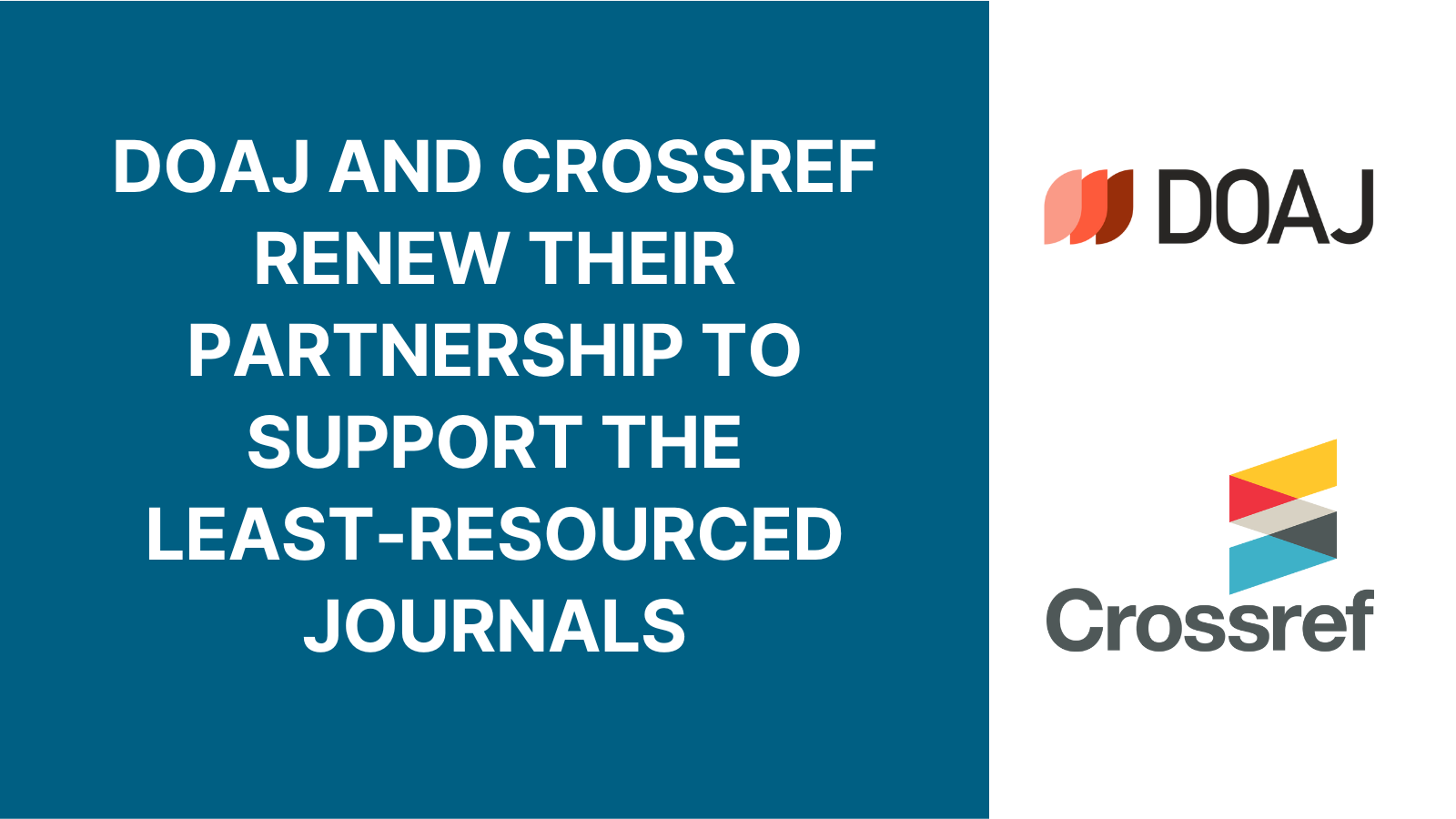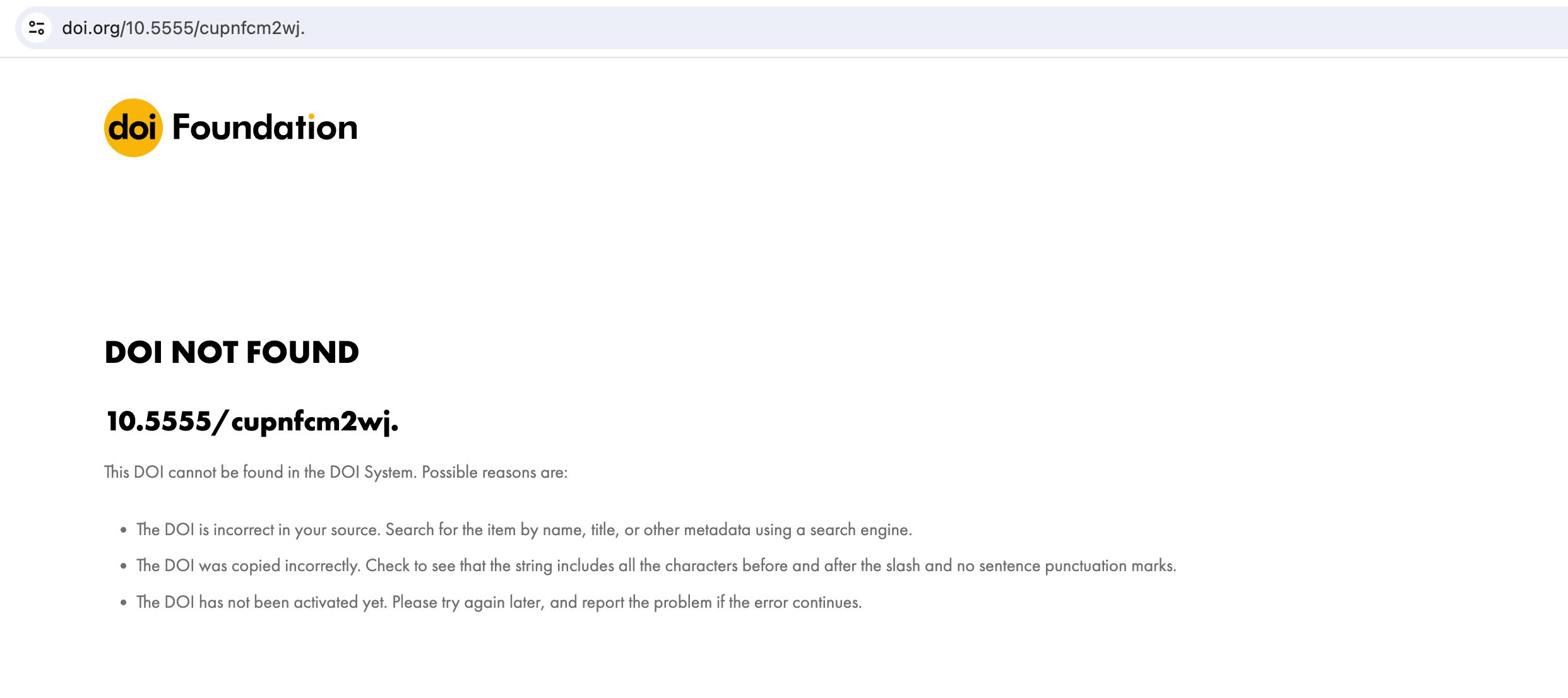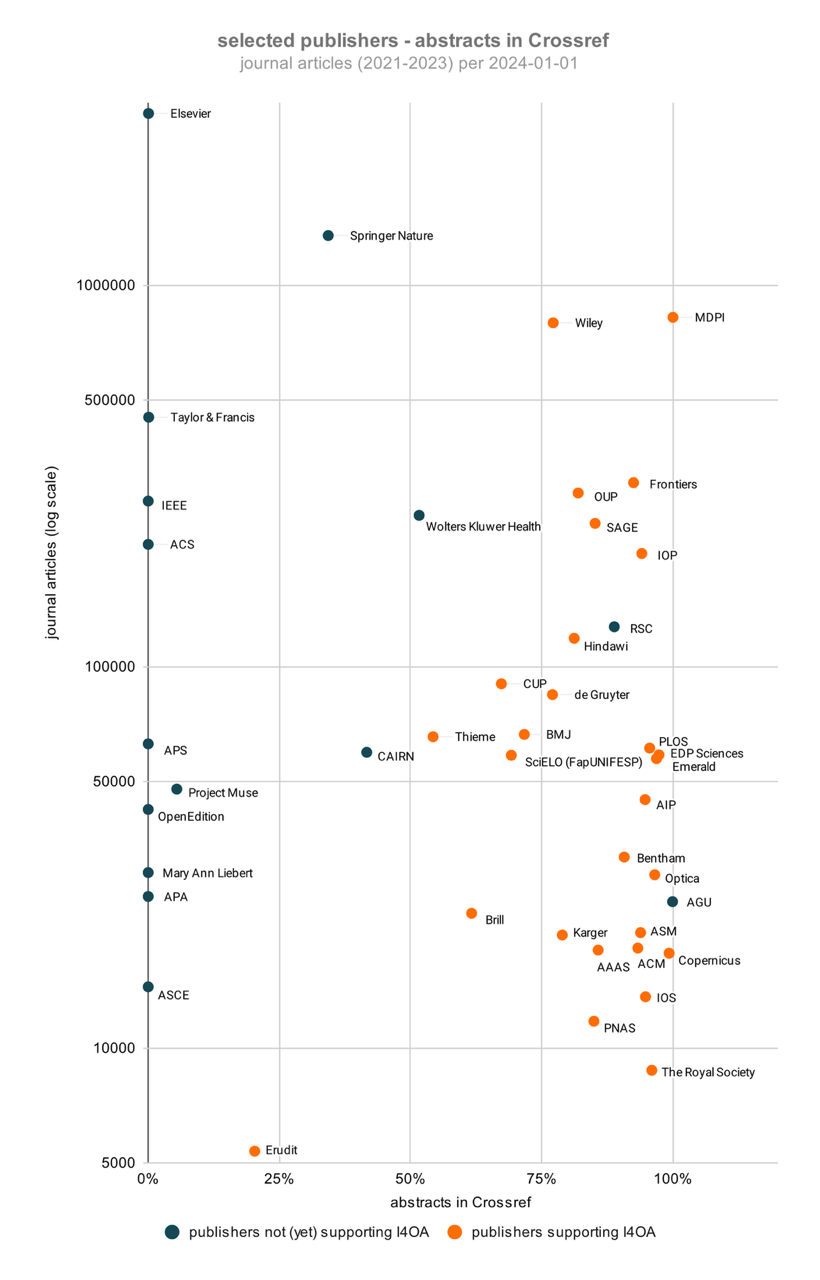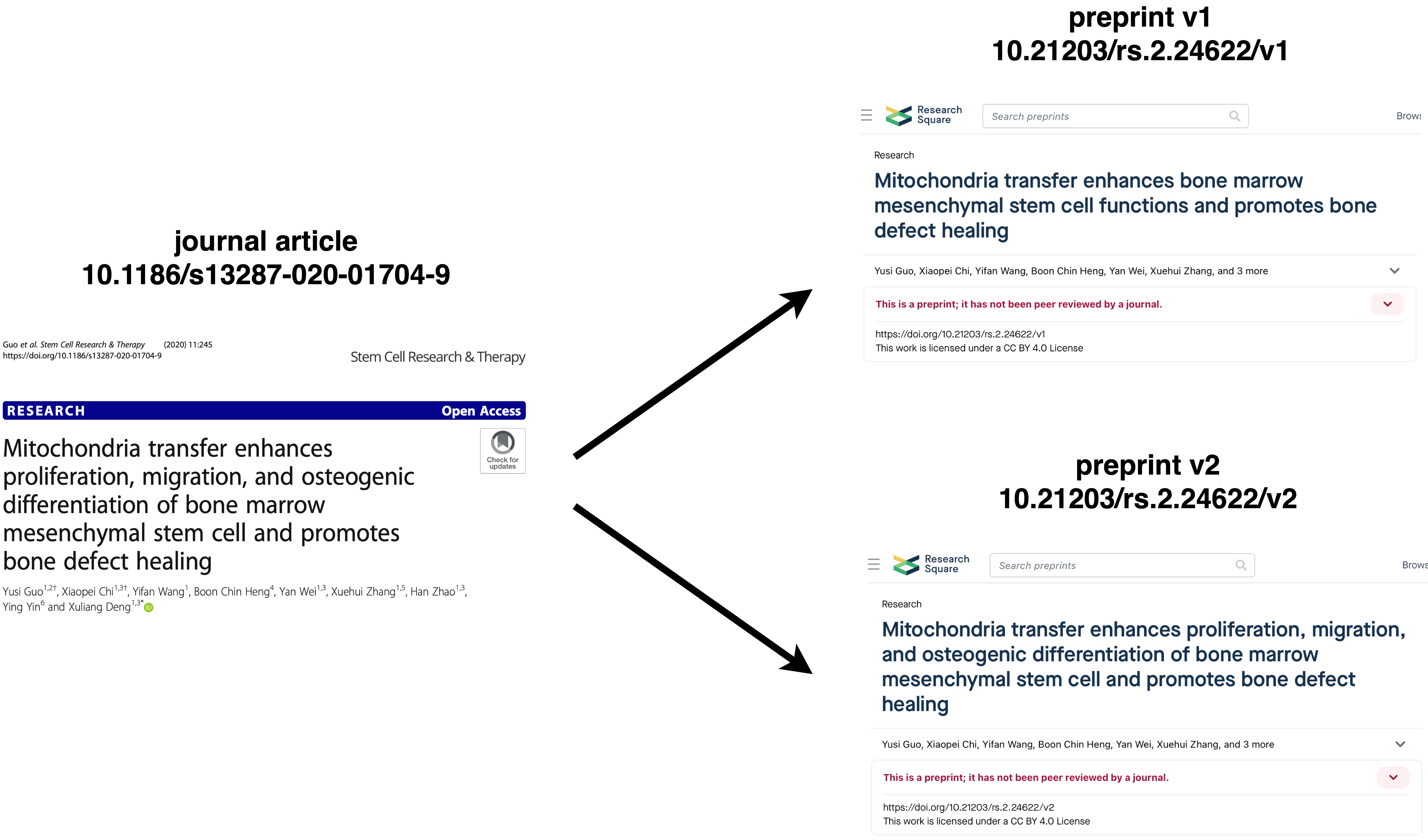
Crossref and DOAJ share the aim to encourage the dissemination and use of scholarly research using online technologies and to work with and through regional and international networks, partners, and user communities for the achievement of their aims to build local institutional capacity and sustainability.




